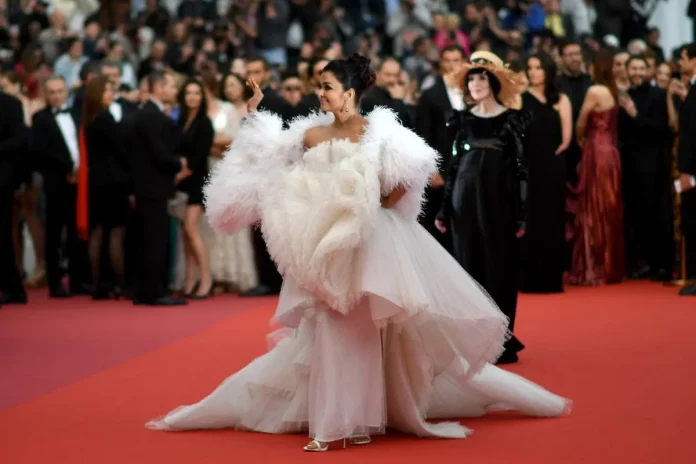
The historical connections between the Middle East and India are deeply rooted in trade, cultural exchanges, and a shared heritage. These ties have not only shaped the history of these regions but continue to influence various aspects of contemporary life, including fashion. The mutual influences between the Middle East and India hold immense significance in the global fashion landscape. As we uncover the threads of this cross-cultural bond, we witness how fashion serves as a powerful medium for cultural expression, fostering unity in diversity.
Traditional Attire: A Cross-Cultural Similarity
India and the Middle East boast a rich heritage of traditional attire that serves as evidence to their cultural plurality. In India, the blend of regional cultures is reflected in their colorful sarees, lehengas, and dhotis, each telling a story of its own. Similarly, the Middle East, with its sundry ethnic groups, embraces garments like the abaya, kaftan, and thobe, intricately designed to convey cultural nuances.
What makes this interplay fascinating is the shared language of design—both regions celebrate craftsmanship, intricate patterns, and luxurious fabrics. India’s love for silk, cotton, and intricate embroidery finds echoes in the Middle East, where fabrics like brocade, silk, and chiffon are adorned with detailed embellishments.

Bollywood and Middle Eastern Cinema: A Cinematic Affair
The silver screen has long been a powerful influencer in shaping societal norms and fashion trends. In both India and the Middle East, the film industry plays a pivotal role in dictating style preferences. Bollywood, with its extravagant song sequences and exclusive costumes, shares a captivating synergy with Middle Eastern cinema, where storytelling often intertwines with exquisite wardrobe choices.
Deepika Padukone’s ethereal grace or Priyanka Chopra’s bold fashion statements—these Bollywood icons resonate not only in India but also find a fan following in the Middle East. Similarly, Middle Eastern actresses like Haifa Wehbe and Nadine Njeim are admired not just for their acting prowess but also for their sartorial choices.
The influence of Bollywood on Middle Eastern fashion is not only confined to the screen. Renowned Indian designers like Manish Malhotra and Sabyasachi Mukherjee find themselves in high demand in the Middle East, showcasing their collections at prestigious events. Simultaneously, Middle Eastern designers gain prominence in India, contributing to a globalized fashion landscape.

Fashion Events as Cultural Crossroads
Middle Eastern designers have undeniably left an indelible mark on the landscape of Indian couture, infusing it with a touch of their distinctive elegance. Renowned designers like Elie Saab and Zuhair Murad have seamlessly blended Middle Eastern opulence with the intricacies of Indian craftsmanship, influencing the aesthetic direction of Indian fashion.
Collaborations between Middle Eastern and Indian designers have given rise to spectacular collections. One notable collaboration is between Indian designer Manish Malhotra and Lebanese designer Elie Saab, whose joint efforts resulted in breathtaking ensembles that merge traditional Indian embroidery with Middle Eastern flair.
Fashion events, such as the Lakmé Fashion Week in India and the Arab Fashion Week, play a pivotal role in fostering cross-cultural design collaborations. These platforms provide a stage for designers to showcase their collections, creating a dialogue that celebrates the fusion of Middle Eastern and Indian aesthetics on the global fashion scene.

The E-commerce Boom: A Digital Uprising
The digital age has ushered in a new era of accessibility, breaking down geographical barriers and creating a global marketplace. Both the Middle East and India have witnessed a surge in e-commerce, enabling fashion enthusiasts to explore and embrace styles from across borders.
The virtual shelves of online platforms now showcase a harmonious blend of Middle Eastern and Indian fashion, fostering a cross-cultural exchange. One of the largest e-tailers of India- Myntra, venturing into the Middle East is not just a business move; it symbolizes the symbiotic relationship between these regions.

What Lies Ahead?
The future of fashion in the Middle East and India holds exciting prospects as the fusion continues to evolve. Anticipating trends requires a keen understanding of the socio-cultural landscape, technological advancements, and the dynamic nature of the fashion industry. As we look ahead, several key aspects are poised to shape the trajectory of this cross-cultural fashion journey.
Both regions share a deep-rooted connection with traditional craftsmanship and sustainable practices. The future sees a heightened focus on sustainable and eco-friendly fashion, where traditional techniques meet modern design sensibilities. The collaboration between Bollywood celebrities and Saudi women designers has already garnered significant international attention, establishing a good foothold in the global market.

Challenges and Opportunities
Cross-cultural fashion between the Middle East and India encounters various challenges stemming from differences in cultural contexts, design sensibilities, and market dynamics. Navigating through distinctive aesthetic preferences while ensuring cultural authenticity poses a considerable hurdle. Additionally, logistical challenges, including sourcing materials and coordinating production across regions, demand meticulous attention.
While challenges persist, they open avenues for growth and innovation in the dynamic Middle East-India fashion dialogue. The fusion of Middle Eastern and Indian influences presents an opportunity to create unique and globally appealing designs.
Collaborations between emerging talents from both regions foster a new wave of creativity, injecting vitality into the fashion narrative. The merging of variegated styles cultivates a broader market and audience, setting the stage for sustained growth in the global fashion arena.
Final Thoughts
As we stand at the edge of a new era in global fashion, it is evident that the alliance between the Middle East and India will continue to shape the narrative. This is not just a symbiosis of fabrics; it is a collaboration of stories, histories, and aspirations. This seamless integration of ancient traditions with contemporary aesthetics represents the true nature of fashion as a cultural expression, inspiring generations to come.
References
- https://www.voguebusiness.com/companies/indias-largest-e-tailer-is-pushing-into-the-middle-east-can-it-go-global
- https://en.vogue.me/fashion/india-middle-east-fashion-influence-bollywood-deepika-padukone-ashi-studio-priyanka-chopra-elie-saab-zuhair-murad-sabyasachi-manish-malhotra/
- https://www.arabnews.com/node/2237086/fashion
- https://fashinza.com/brands-and-retail/marketing/fashion-in-the-middle-east/
- https://lakmefashionweek.co.in/
